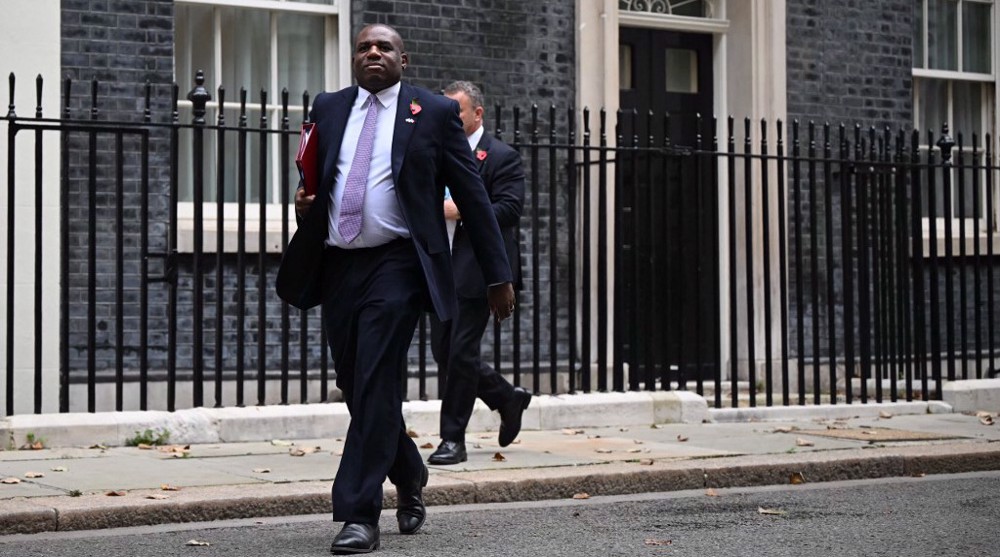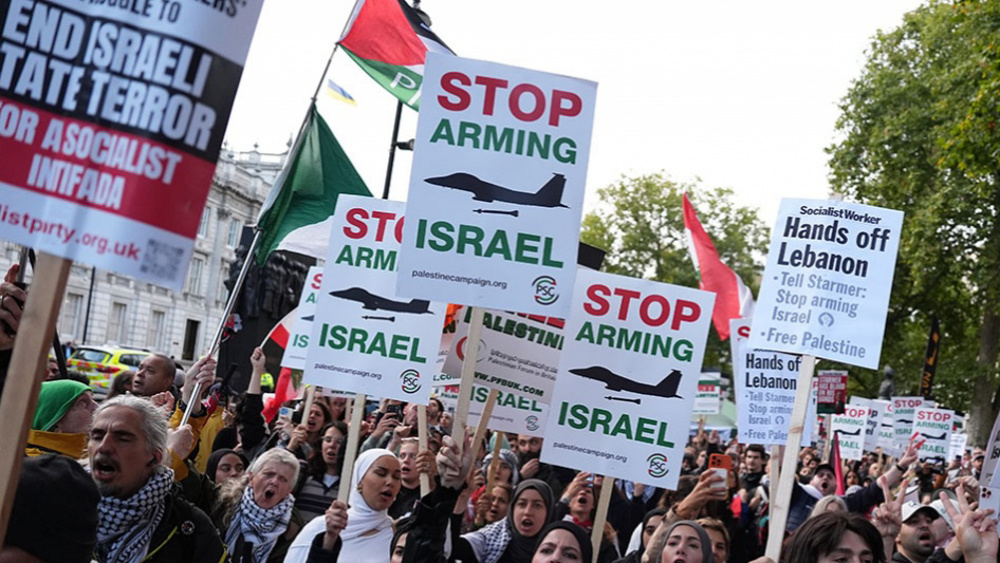Corbyn expresses his opposition to Syria airstrikes
Britain’s opposition Labour party remains divided over a proposed parliament vote on the UK military action in Syria.
Labour leader Jeremy Corbyn, in a letter to his MPs, has reiterated his opposition to the airstrikes in Syria, British media reported on Friday.
Corbyn and the shadow foreign secretary, Hilary Benn have expressed different views on Prime Minister David Cameron’s plan to target Daesh terror hideouts in Syria.

The Labour leader faced dissent in the shadow cabinet hours after Cameron asked parliament to back his Syria plan. Many shadow cabinet members are said to be considering backing Cameron when the House of Commons votes next week on airstrikes against ISIL in Syria.
On Thursday, in response to Cameron’s speech, Corbyn said “he is reluctant to support strikes without the approval of political plan for Syria”. The veteran anti-war activist also wrote to his MPs saying Cameron had failed earlier in the day to explain how an aerial campaign would protect UK security.
“I do not believe the prime minister’s current proposal for airstrikes in Syria will protect our security and therefore cannot support it,” Corbyn wrote.

The letter was met with surprise among the most senior Labour MPs, who were still debating the issue for collective response next week.
“I think that we have all agreed on a process, and the process is that there was a shadow cabinet meeting yesterday, there would be a rebellion if a whip against airstrikes were imposed”, Emily Thornberry, shadow employment minister, told BBC Radio on Friday.
“When it comes to an issue of war, it is something that people think very profoundly about. We do usually act collectively, but I think on issues like this there are times when people cannot stick to a whip which is imposed,” she said.
Cameron while formally responding to a report by the commons foreign affairs select committee on Thursday cited Paris-like terror threats and it’s time for Britain to join airstrikes against the ISIL terrorist group in the Arab country.
Cameron, who lost a vote on Syria airstrikes in 2013, needs to persuade lawmakers of both ruling and opposition camps to win parliament's backing for military action.
Israeli strike on Lebanon kills at least 15 people
Israeli forces kill 7 more Palestinians in West Bank
VIDEO | US presidential election
Netanyahu fires military affairs minister Gallant
Hezbollah attacks turn Israel’s Haifa into a ghost town
Iran’s FM meets Pakistani PM, discusses bilateral ties, Israeli atrocities
Iran ramps up gasoline output amid rising demand
UK foreign secretary under pressure over denial of genocide in Gaza










 This makes it easy to access the Press TV website
This makes it easy to access the Press TV website